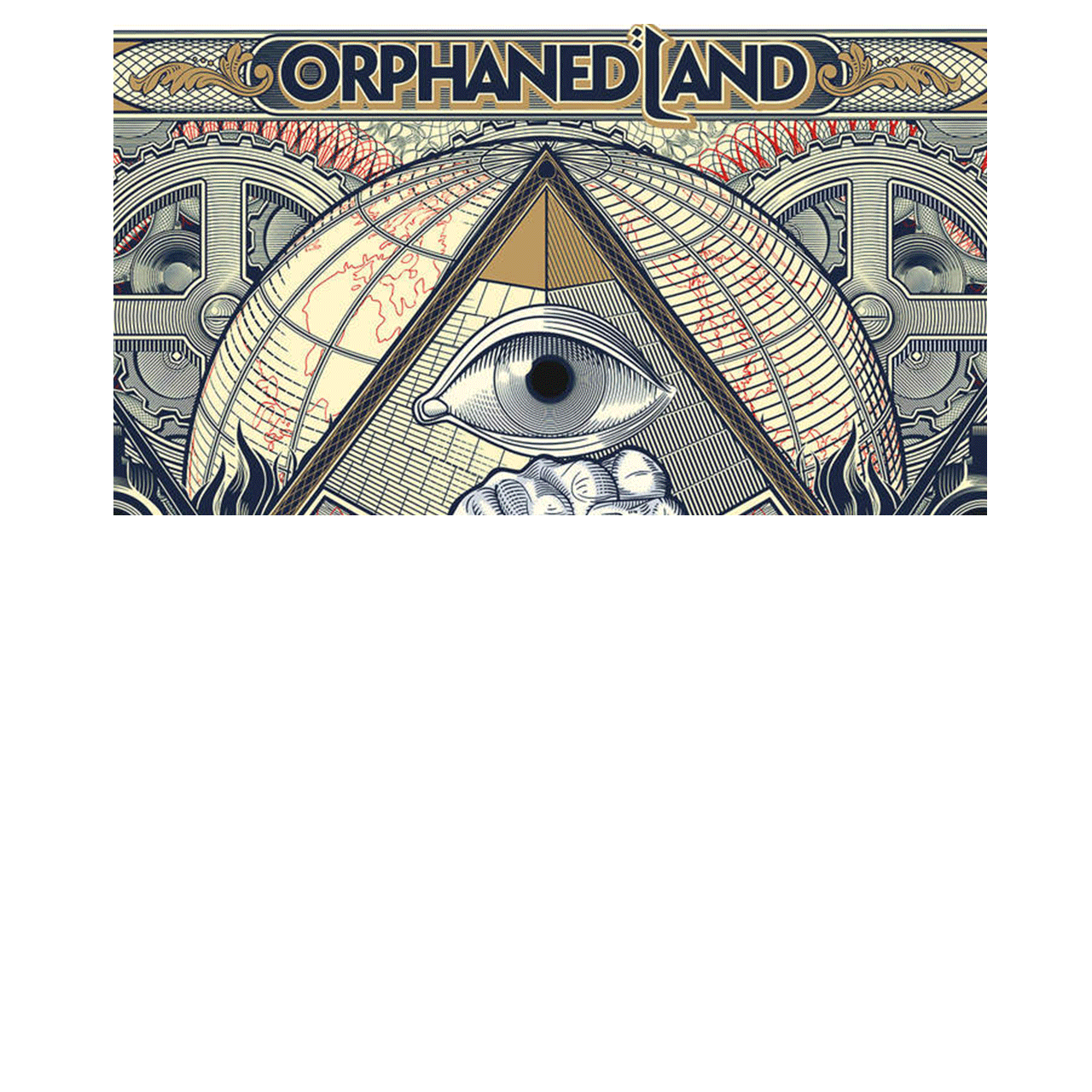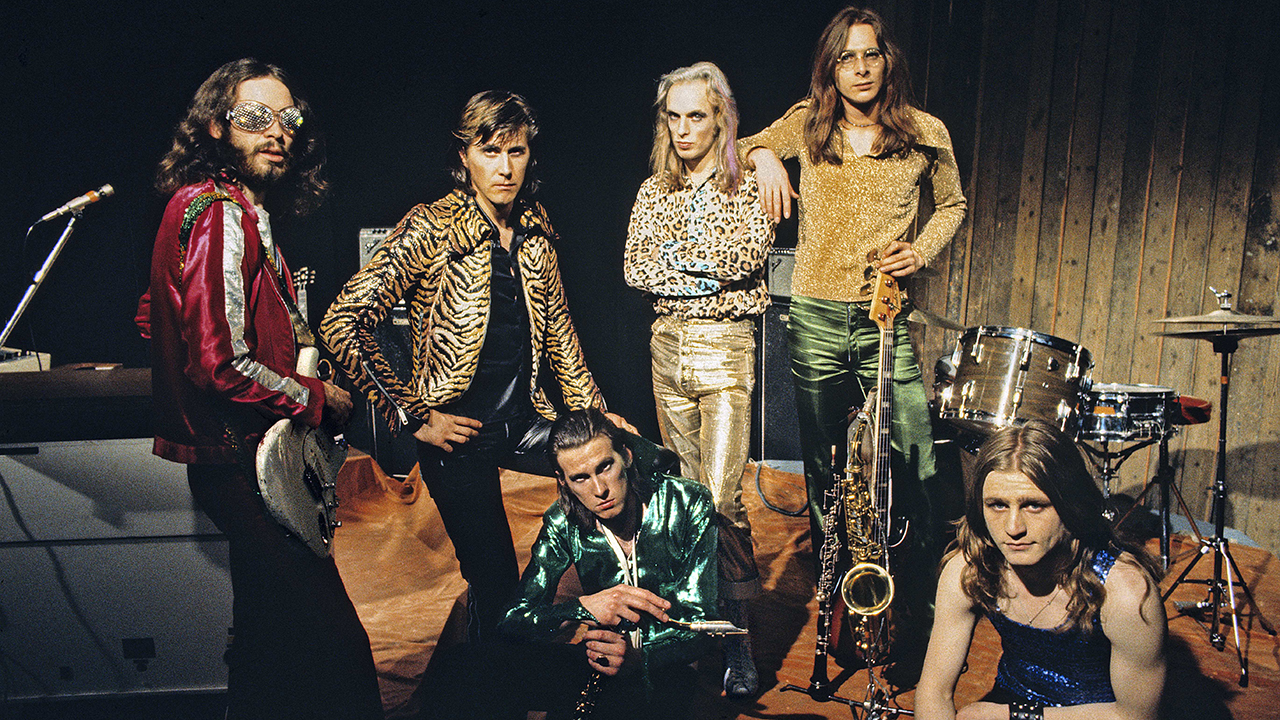You can trust Louder
Purveyors of rambling concept albums since the mid 90s, Orphaned Land’s progressive credentials have never really been in doubt. But while early albums may have been too deeply
entrenched in extreme metal to forge a firm connection with the prog world, from the fiendishly inventive, sand-blasted sprawl of 2010’s The Never Ending Way Of ORwarriOR onwards, the Israelis’ music has been purposefully progressive in both notable senses of the word.
Not many bands – in fact, just this one – have been given several prestigious international peace awards for their services to humanity, but then when you are making music at the heart of the Middle East’s most troubled enclave while purposefully and passionately advocating peace, truth and unity, the stakes are necessarily higher than they would be for a band in, let’s say, Bournemouth.
As a result, every last note of Unsung Prophets And Dead Messiahs resounds with a sense of significance, even before one encounters the album’s overriding concept: the notion that throughout history, mankind has killed or silenced every righteous or enlightened prophet or writer that has offered us a path to peace, from Socrates and Jesus to Gandhi, Guevara and Martin Luther King. So strong and evocative is the theme that the whole album feels like a collective act of grabbing humanity by the shoulders and giving it a vigorous, re-orientating shake.
A breathless eight minutes of joyously overblown metallic rock opera, opener The Cave reveals a more loose-limbed and spacious band than the one that made All Is One in 2014. Still firmly rooted in the Israelis’ trademark ‘oriental metal’, it simply feels as if Orphaned Land have learned some essential lessons from previous albums and are able to express those core ideas with more clarity and grace. Even something as succinct and traditionally structured as We Do Not Resist feels more substantial and emotionally focused than before, which in turn suggests that Kobi Farhi and his comrades’ resolve has grown in tandem with their songwriting skills. When that blissful chemistry erupts within a grand epic, the results are nothing short of spectacular: In Propaganda/All Knowing Eye is a thrillingly grandiose slab of intricate prog metal protest, while Chains Fall To Gravity’s stately riffs and pinpoint dynamics generate a mounting sense of foreboding and fury.
While managing to avoid overwrought earnestness or pious sermonising – and just think how tricky that must be when even relatively conventional political thought seems to have gone wonky of late – Farhi’s ability to sound simultaneously exasperated and hopeful, both through his increasingly soulful and sonorous singing voice and his trademark growls, has never been more effective.
Elsewhere, it’s an unwavering combination of broad brushstrokes and subtle details that makes this such a rewarding musical journey. Even ignoring the ongoing narrative, there’s a fluidity to the way Farhi’s tales are spun, his band’s masterful and often distinctly catchy bombast never overwhelming the songs’ structural elegance nor the message. During the pulsing, Zep-tinged march-towards-hope of Take My Hand, glimmering strings swoop and dive across riffs that build and spiral towards an almost psychedelic crescendo of exultant sound. Quite how Farhi and his bandmates conjure such uplifting and triumphant sounding music while the path to peace becomes steeper by the year is anyone’s guess, but even the darkest, most aggressive moments on Unsung Prophets exude a sense of urgency, momentum and unyielding resilience.
Sign up below to get the latest from Prog, plus exclusive special offers, direct to your inbox!
Drawing to a dramatic close with Only The Dead Have Seen The End Of War – a thunderous groove, bursts of choral euphoria and swathes of jabbing violins – and the Floydian pomp and misty-eyed melancholy of The Manifest, Orphaned Land’s sixth album is their most cohesive, absorbing and accessible. Almost creaking under the weight of the band’s ideas, it arrives as their homeland is yet again the focus of freshly-stoked tensions: a very welcome and admirable plea for sanity from artists whose ethics are fundamental to everything they do. The belief that music really could change the world was once taken more seriously than it is in these cynical, turbulent times. But having embraced that chance to make a difference, OL have no intention to abandon their cherished mission nor to allow hope of a better world to die. For that alone they deserve applause, but the fact that the music is also frequently extraordinary makes this profoundly humanitarian work of art even more irresistible.

Dom Lawson began his inauspicious career as a music journalist in 1999. He wrote for Kerrang! for seven years, before moving to Metal Hammer and Prog Magazine in 2007. His primary interests are heavy metal, progressive rock, coffee, snooker and despair. He is politically homeless and has an excellent beard.

